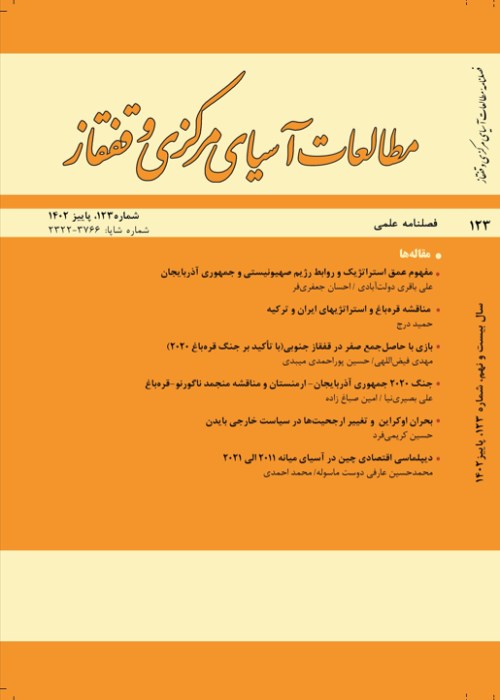Relations between the Russian Federation and European Populist far-right Parties; Roots and Consequences
Author(s):
Article Type:
Research/Original Article (دارای رتبه معتبر)
Abstract:
Although after the disintegration of the Soviet Union in 1991 and its weakening in the international arena, relations between Russia and the West did not face much tension, and even cooperation between the two sides was established, gradually, and especially when Putin took office, Russian-Western relations have been strained. The turning point in changing Russians' view on the West was in 2004, when a series of color revolutions took place in the former Soviet republics. To Moscow, color revolutions were carried out with the help of the West or the US with the aim of creating a color revolution in Russia itself. For the Russian ruling elites, these actions marked the end of the cooperation between the mainstream politicians in the West and Russia, and an important moment in turning Russia's look away from the West and intensifying anti-Western sentiment in Russia. Since then, Russia sought to cement its position in the international system and weaken Western structures, especially the EU. To strengthen its influence in Europe, Moscow uses various tools to weaken the EU. In recent years, Russia has managed to promote Russophilia and Euroscepticism, that are two sides of the same coin. Russia's policy is attractive to parties and countries which see themselves as victims of the European Union. Russia hopes that the rise of right-wing parties in European countries will weaken liberal democracy structures. In recent years, challenging the security structures in the West and undermining the cohesion of the EU, have been the central goal of Russia's foreign policy. The main question is that "what are the main aims of Russia in strengthening its relations with European far right parties?" The hypothesis is that "Russia's main foreign policy is to challenge the Western security structures and Moscow hopes the rise of right-wing parties in European countries will undermine the Western liberal narrative and weaken the liberal democracy structure especially the EUs’". Using explanatory- analytical research method, the author attempts to find an answer to the article's question.
Language:
Persian
Published:
Journal of Central Asia and The Caucasus Studies, Volume:26 Issue: 110, 2020
Pages:
173 to 201
magiran.com/p2219802
دانلود و مطالعه متن این مقاله با یکی از روشهای زیر امکان پذیر است:
اشتراک شخصی
با عضویت و پرداخت آنلاین حق اشتراک یکساله به مبلغ 1,390,000ريال میتوانید 70 عنوان مطلب دانلود کنید!
اشتراک سازمانی
به کتابخانه دانشگاه یا محل کار خود پیشنهاد کنید تا اشتراک سازمانی این پایگاه را برای دسترسی نامحدود همه کاربران به متن مطالب تهیه نمایند!
توجه!
- حق عضویت دریافتی صرف حمایت از نشریات عضو و نگهداری، تکمیل و توسعه مگیران میشود.
- پرداخت حق اشتراک و دانلود مقالات اجازه بازنشر آن در سایر رسانههای چاپی و دیجیتال را به کاربر نمیدهد.
In order to view content subscription is required
Personal subscription
Subscribe magiran.com for 70 € euros via PayPal and download 70 articles during a year.
Organization subscription
Please contact us to subscribe your university or library for unlimited access!



